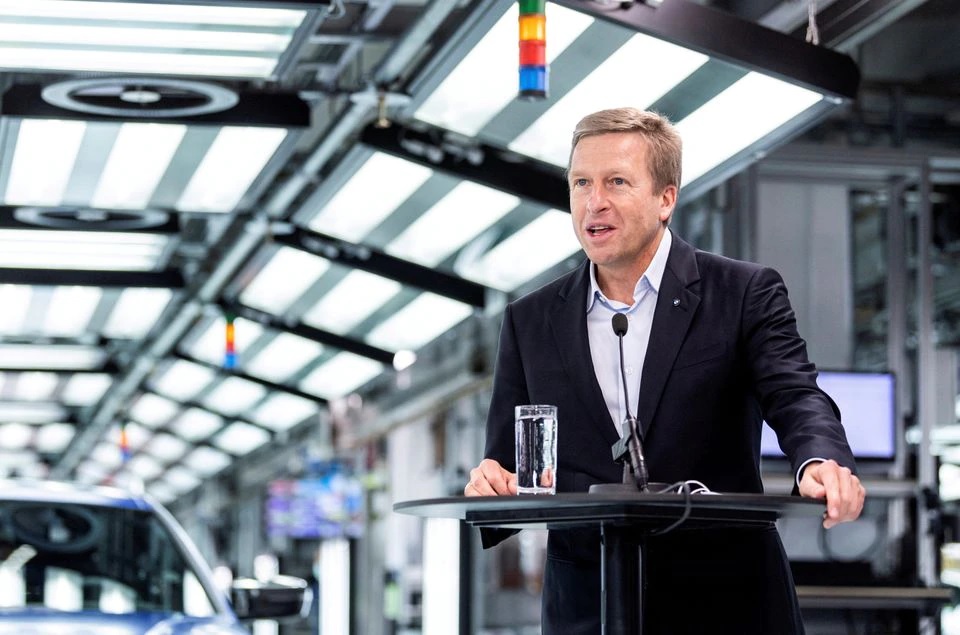GREENVILLE, South Carolina, Oct 19 (Reuters) – Setting a date to phase out gas-powered vehicles could remove “cheap cars” from the market, putting ownership out of reach for many, and be politically dangerous, the board chair of German automaker BMW Oliver Zipse (BMWG.DE) said on Wednesday.
Speaking ahead of the announcement of a $1.7 billion electric vehicle (EV) investment in South Carolina, Zipse said in an interview that BMW has not set a date to end production of gas-powered vehicles and cautioned against banning their sale.
“We don’t want cars to be taken away out of the base segment, politically that’s super dangerous,” Zipse said. “If you all of a sudden make car ownership only for rich people, it’s a dangerous thing.”
BMW backs ambitious vehicle regulations, Zipse said, but setting a firm date to end combustion engine sales could also result in people continuing “to drive their old cars – and that is not what we want.” Zipse told a crowd at its EV announcement that “it’s a free nation — we offer choice and not limitations.”
Rival automaker General Motors (GM.N) has said it plans to end sales of gas-powered passenger vehicles by 2035. California in August adopted rules to require all new vehicles sold in the state by 2035 to be either electric or plug-in hybrids.
Zipse said “there is no signal” that on a global scale the combustion engine will be obsolete within the next 15 years.
Asked when BMW will produce its last combustion engine, he joked: “We should ask this vase maybe?”, adding the automaker did not know.
“As a politician I would be mega-careful… because you’re taking away cars by regulation,” Zipse said. However, he added that where there are regulations mandating only zero-emission models “we are ready, we will have enough cars.”
President Joe Biden has called for 50% of all new vehicle sales by 2030 to be EVs or plug-in hybrids but has not endorsed a phase-out date.
BMW, which expects at least 50% of its sales by 2030 to be zero-emission, says it will more than double EV sales this year. “It’s a mixture between regulation, customer sentiment and product,” Zipse said. “The market is there and it’s growing.”











